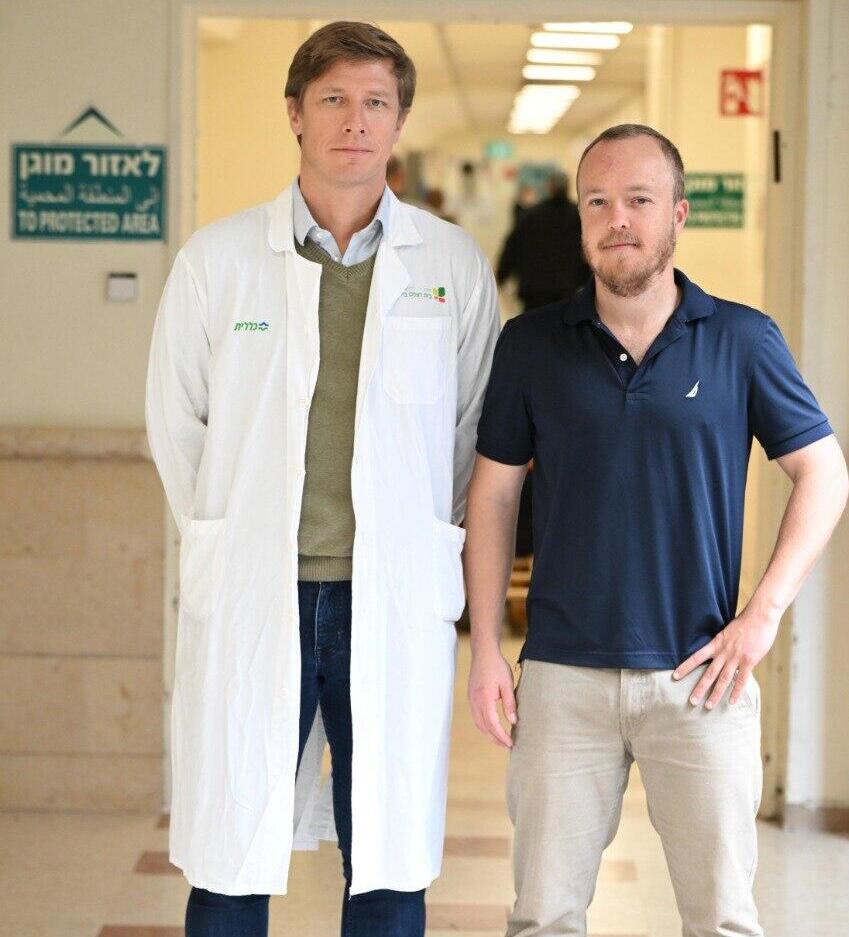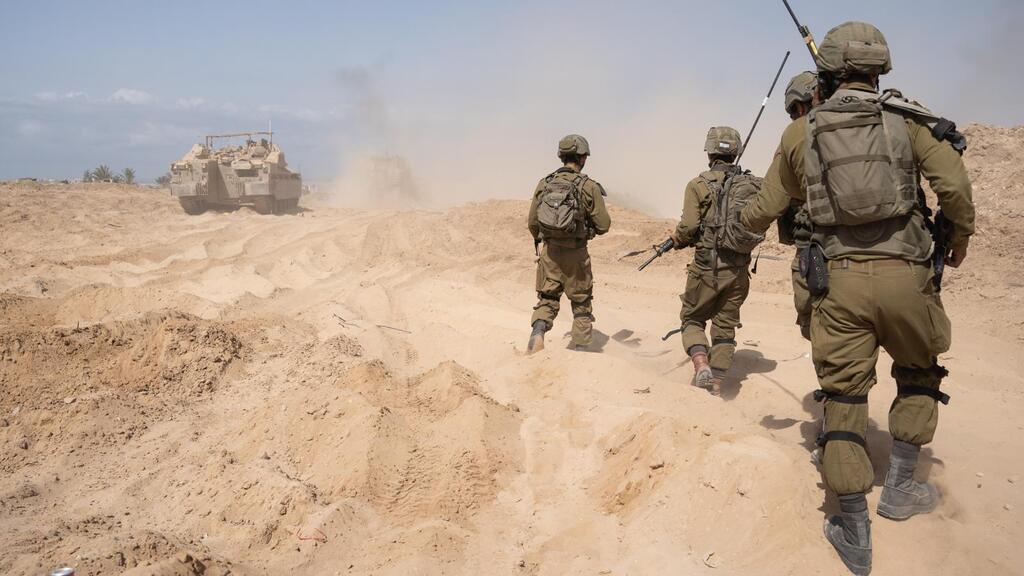Getting your Trinity Audio player ready...
"I think it was a bomb. According to the report, I hit my head on the computer screen and that's how my skull was fractured," recalls Saar Ram, a platoon commander in the Tank Corps 188th Brigade, of the moment of his injury. "After two weeks, when I slept at my parents house, I woke up with terrible pain in my shoulder. I went back to bed and saw that it was upside down. I woke up my mother, who noticed that I had bitten my tongue. We realized that I had a seizure."
More stories:
Ram, 28, from Kibbutz Givat HaShlosha, served as a tank commander in the 188th Brigade. He was wounded in the head in the battle in which the late Lt. Col. Salman Habaka fell at the beginning of November. He was diagnosed with a skull injury hortly after he was evacuated by helicopter to Beilinson Hospital. Two weeks after the injury, in the middle of the night, when he turned to his mother for help, the two of them realized that he was convulsing and he immediately went back to Beilinson. "I was immediately taken by ambulance to the Emek Hospital and later I arrived in Beilinson," Ram says, describing that night.
2 View gallery


Felix Benninger, deputy director of the neurology department and epilepsy specialist at Beillinson
(Photo: Yuval Chen)
"I dislocated my shoulder from the seizure. At Beillinson they operated on me and removed a piece of my skull, which at first they thought would grow back together on its own. I am now taking anticonvulsion pills and it seems that the chances of them returning are low. I am in a higher risk group than those who have not been injured in the head, but here the reason is clear. Can it develop epilepsy? Yes, but according to the doctors, the chances are low."
The IDF does not have official data on the subject, but some hospitals report soldiers, especially those with head injuries, who faced early symptoms of convulsions that may sometimes develop into epilepsy. The scope of the phenomenon at this stage is unclear and it also appears in other trauma events that result in head injuries, among others from car accidents, but experts in the field of neurology call for vigilance on the subject since symptoms of epilepsy may also appear later on.
Epilepsy (also known as seizure disorder) is a neurological disorder in the central nervous system and is characterized by a disturbance of the electrical activity of the nerve cells in the brain. One of its main manifestations is convulsions, which may last from a few seconds to a few minutes. The lack of ability to anticipate these convulsions may seriously harm the quality of life of those dealing with the disease, mainly due to fear of their sudden appearance in a variety of situations such as driving, swimming or sleeping. So far, seven soldiers who were injured in the war in Gaza have suffered seizures as a result of their injury, and it is estimated that at least some of them will eventually be diagnosed with epilepsy, one of the consequences of which, in high rates, is dealing with depression. The professional assessment is that the seizures are the result of inflammation that develops in the brain following the injury.
"Epilepsy is actually diagnosed by repeated seizures with no clear trigger. These are recurrent attacks that cannot be expected, and the patients do not know when they will be able to study, work or have children. Most patients function normally, but there is no fixed frequency for convulsions that can appear once every two years or much more," according to Dr. Felix Benninger, deputy director of the neurology department and epilepsy specialist at Beillinson, who treated Ram.
According to Benninger, the appearance of epileptic symptoms among soldiers and young people is rare. "Diagnoses are usually made among children and at the age of 20 and 30 there is a sharp decrease in them. Around the age of 50 there is a sharp increase, following events such as Alzheimer's or tumors that cause brain changes," he said.
"Injuries in military service and trauma injuries in general are a significant factor in the appearance of epilepsy in this young age group. Since October 7, I have been seeing soldiers with a brain injury and epileptic seizure. This does not necessarily mean that there will be seizures in the future, but they do receive drug treatment. Most of the patients who had a seizure are still on drug treatment. There are quite a few who stop treatment and also have additional seizures, and that is already a diagnosis of epilepsy," adds Dr. Benninger.
"Of all the soldiers who suffered head injuries, it is possible that even in the more distant future we will see those with symptoms of epileptic seizures, and the difficulty will be more around that and less around the injury itself. Some 15% to 30% of severe head injuries can lead to epileptic seizures," according to the doctor.



